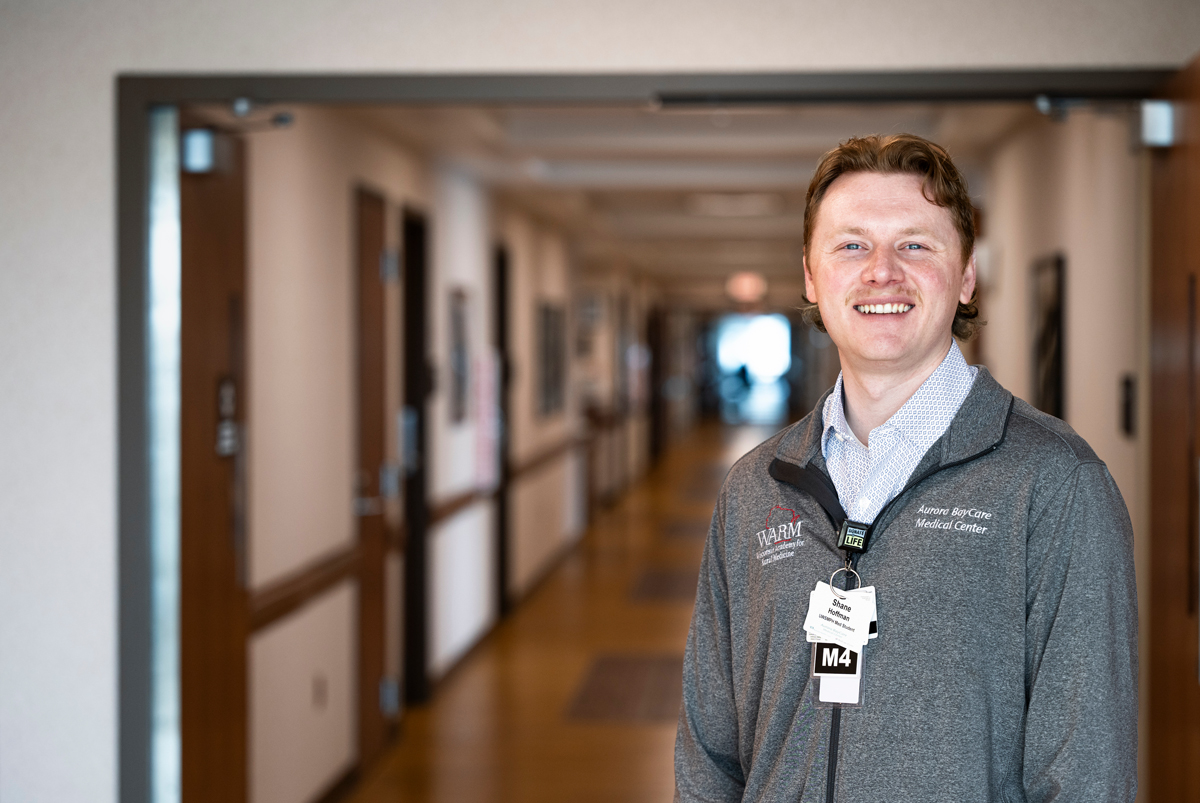Addressing Rural Health Care Shortages
A new program from the UW School of Medicine and Public Health trains doctors for serving in the country.

In May, Shane Hoffman became the first person to graduate from the UW’s accelerated program for training rural physicians. Jeff Miller
Shane Hoffman ’18, MD’25 can see the future he wants clearly: he’s a surgeon at a clinic or small hospital in rural Wisconsin — perhaps somewhere in the far northern part of the state, where his family has deep roots. His medical practice will allow residents to access care quickly and stay closer to their homes and families.
“Hospitals are going under because they can’t attract people to these rural communities,” says Hoffman, who grew up near Lake Mills, Wisconsin. “I want to live in a small town or in the country. It’s where I feel most at home.”
In May, Hoffman became the first graduate of a program at the UW School of Medicine and Public Health that reduces the time it takes to train doctors who are interested in serving rural parts of the state. Students in the accelerated program take all the same required courses but graduate in three years instead of four.
“There’s a significant geographic disconnect in Wisconsin between where people live and where doctors practice,” says Joseph Holt ’91, director of the UW’s rural medicine program. “As many as 31 percent of the state’s residents live in rural areas, yet only one in 10 physicians practice in these rural areas. It’s imperative that we address this problem, because the rural physician shortage is only going to increase as current physicians retire and the population ages.”
The goal of the accelerated program is to instill in graduates a desire to practice in rural Wisconsin — there are no contracts or other requirements. Hoffman’s clinical rotations as a medical school student took him to rural areas all over the state. What he witnessed only increased his resolve to practice rural medicine.
“It makes me sad to walk through an empty hospital wing,” Hoffman says. “People are being shipped to bigger cities because of staff shortages in these rural areas.”
Published in the Fall 2025 issue



Comments
No comments posted yet.